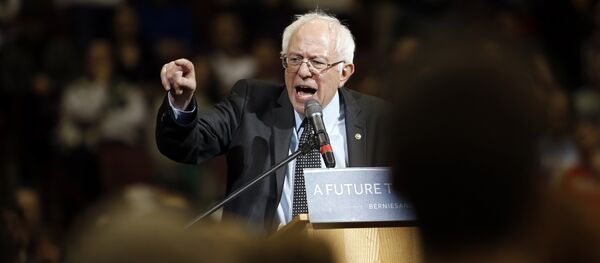WASHINGTON (Sputnik) — On October 28, Comey informed Congress in a letter that the FBI was reopening a probe into Clinton's use of a private server after finding a new batch of emails. Eight days later, the FBI director said he would stand by his July decision not to recommend criminal charges.
"I think Comey’s letter really hurt Clinton a lot because she was closing out the campaign on a very positive note," California State University Los Angeles professor Raphael Sonenshein told Sputnik. "It was devastating."
"The Comey letter right away brought back all of their doubts," Sonenshein stated.
In contrast, Sonenshein noted, Clinton’s Republican rival Donald Trump had built this remarkable connection with his supporters who forgave him for almost everything.
The main driver of the election outcome, however, he added, was a very strong commitment by white working class voters who voted for Trump in far greater numbers than they did for Republican nominee Mitt Romney four years ago.
Sonenshein argued that Trump clearly "hit a nerve" with not only the working class but the entire white segment of the population.
"There is certainly a sense of a developing kind of white identity that probably was there but was much more accentuated this year by Trump’s campaign," Sonenshein suggested.
The Strategy Group’s Bill Fuhry, a veteran political consultant, told Sputnik that Comey’s decision to breathe new life into the email scandal certainly hurt Clinton’s campaign, but it was only one issue among many that led to her falling short.
Clinton already had to overcome the baggage that had piled after 25 years of the Republican Party trying to tarnish her image, Fuhry continued, and Comey’s letter was yet another negative issue to add to the pile.
"I think each and every one of them was another individual cut for a candidate who was always going to have a bit of an uphill battle," Fuhry remarked.
Clinton also lost because Trump had effectively tapped into an ever growing anti-establishment movement, Fuhry said, not to mention his ability to paint her as the war candidate.
Trump going forward, he concluded, faces an electorate that expects him to deliver on his promises because he has a Republican controlled Congress but he also faces a Republican party that was never 100 percent on board with him.





